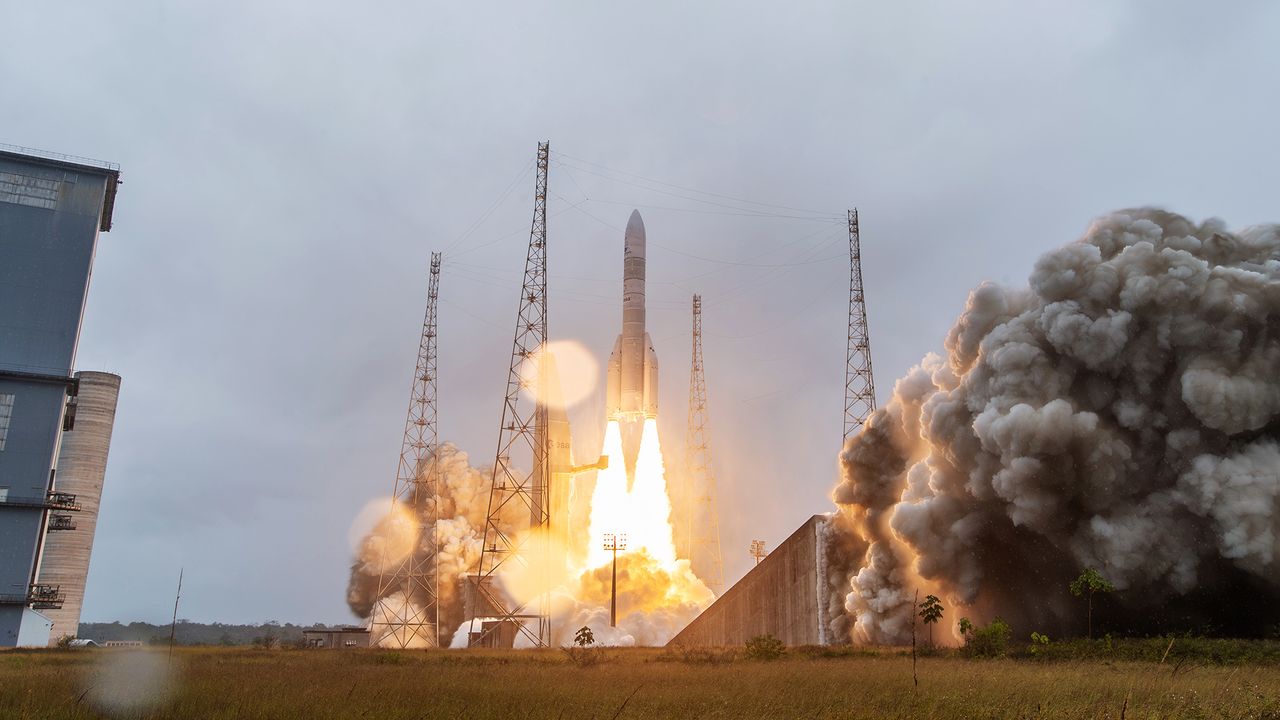Europe’s powerful Ariane 6 rocket is poised to make its third launch tonight, August 12, 2025, from the European Spaceport in Kourou, French Guiana. The liftoff is scheduled for 8:37 p.m. EDT (9:37 p.m. local time in Kourou; 00:37 GMT on August 12). Live coverage will be available through Arianespace, the French company responsible for the Ariane 6’s operations on behalf of the European Space Agency.
This launch marks a significant milestone for the Ariane 6 program, which debuted with a test flight in July 2024 and successfully completed its first commercial mission in March 2025, delivering a French spy satellite into orbit. If all goes according to plan, tonight’s mission will see the rocket carrying the Metop-SGA1 weather satellite into space.
The Metop-SGA1 satellite, which weighs approximately 8,900 pounds (4,040 kilograms), will be operated by an international consortium known as EUMETSAT (European Organisation for the Exploitation of Meteorological Satellites). This satellite’s deployment into a polar orbit will occur about 500 miles (800 kilometers) above Earth, approximately 64 minutes after launch.
Once operational, Metop-SGA1 will utilize its six onboard instruments to gather crucial data on weather and climate. This includes high-resolution observations of temperature, precipitation, clouds, winds, sea ice, aerosols, pollution, soil moisture, volcanic dust, and a variety of other parameters. According to Arianespace, this satellite will elevate global weather and climate observation to a new level.
Metop-SGA1 is the first of six planned satellites in the Metop Second Generation constellation, developed by Airbus Defence and Space. Tonight’s launch will also mark the 355th mission for Arianespace, which operates a smaller rocket known as the Vega C. With Metop-SGA1, Arianespace will have launched a total of 15 spacecraft for EUMETSAT and 21 meteorological satellites overall.
As anticipation builds for tonight’s event, the Ariane 6 rocket continues to demonstrate Europe’s commitment to advancing its capabilities in space exploration and satellite technology. The launch promises not only to contribute to significant advancements in meteorological data collection but also to reinforce the region’s strategic position in the global space industry.





































































